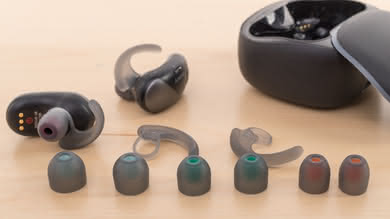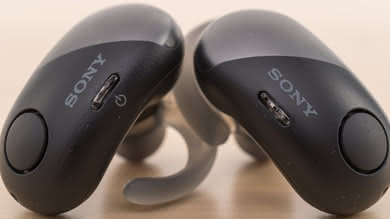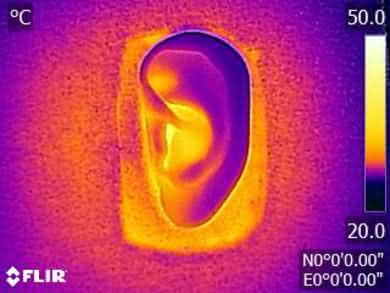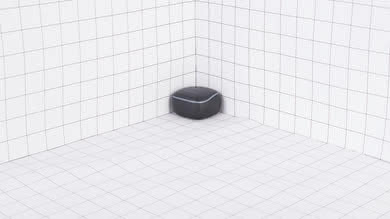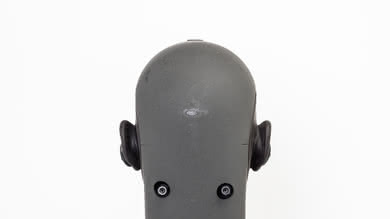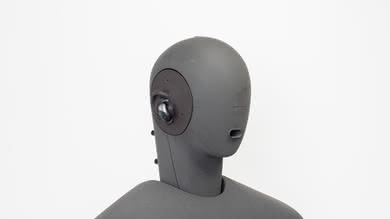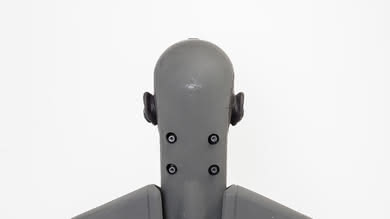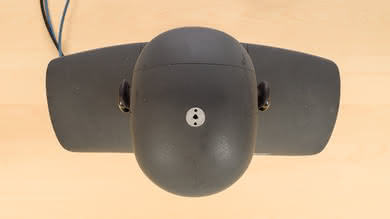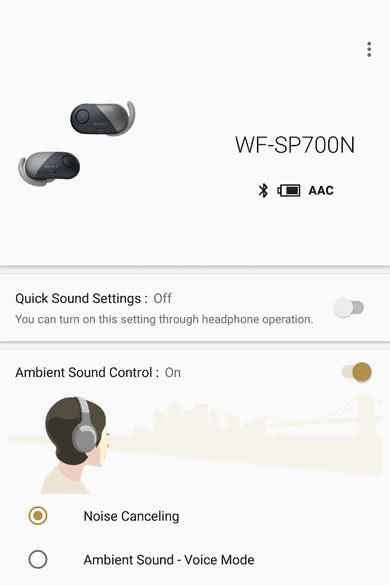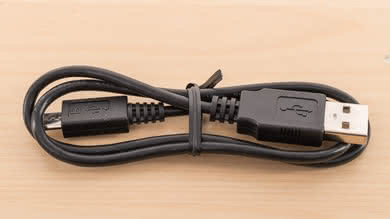The Sony SP700N Truly Wireless are okay in-ears for most uses, with a unique earbud design. They're decently well-built, stable enough for sports, and have a bass-heavy sound profile, which fans of EDM and hip-hop can enjoy. Unfortunately, they have a sub-par control scheme that makes them difficult to use, very high latency not suitable for watching videos, and a poor noise cancellation feature that doesn't isolate better than most passive in-ears, which is very disappointing.
Our Verdict
The Sony SP700N are fair for mixed usage. They're compact, easy to carry around, and have a decently comfortable in-ear fit. They also have a decent if slightly too bass-heavy sound and unique design that's decently durable and will stand out compared to other truly wireless in-ears. Unfortunately, despite being noise cancelling headphones, they don't do well in noisy environments. They also have fairly short battery life and very high latency that a deal-breaker if you mostly use your headphones to watch videos or gaming.
-
Stable fit for sports.
-
Compact and decently sturdy design.
-
High latency.
-
Poor noise isolation.
The Sony SP700N are passable for neutral sound. They have a bass-heavy sound profile that will drown some of the instruments and vocals in the mid-range. They have a couple of sharp spikes in the higher frequencies that make some S and T sounds piercing and a bit too bright. They won't be the ideal choice for more neutral listeners, but the deep bass may sound exciting for some, and you can always somewhat tweak their sound profile thanks to the preset available in the Sony| Headphones Connect app.
The Sony SP700N are decent for commute and travel. They're compact and easy to carry around and have active noise cancelling, which is rare for a truly wireless design. Unfortunately, their noise cancellation doesn't do much and isn't better than their passive in-ear fit. They also don't last as long on a single charge, meaning they won't be the ideal headphones for long trips and long continuous listening sessions.
The Sony SP700N are very good for sports. They're breathable and stable enough for running and exercising. They're also compact and decently comfortable truly wireless headphones that you can easily have on you at all times. Unfortunately, they have a poor control scheme and short battery life that may not be ideal for all training regiments.
The Sony SP700N are acceptable for office use. They don't leak much, so you mask some ambient noise by playing your music at higher volumes without distracting colleagues. Unfortunately, they don't block a lot of noise even with the noise cancellation feature enabled. They also have relatively short battery life and a fairly typical in-ear fit which might not be ideal for really long listening sessions.
The Sony SP700N are disappointing for gaming. They have very high latency, which is a deal-breaker for this use. They also have a sub-par microphone and aren't as customizable as most gaming-oriented headsets.
- 6.7 Mixed Usage
- 6.5 Neutral Sound
- 7.0 Commute/Travel
- 7.9 Sports/Fitness
- 6.4 Office
- 5.2 Wireless Gaming
- 5.1 Wired Gaming
- 5.8 Phone Calls
- Updated Mar 27, 2020: Converted to Test Bench 1.4.
- Updated Nov 21, 2019: Converted to Test Bench 1.3.1.
- Updated Nov 21, 2019: Converted to Test Bench 1.3.
- Updated Aug 22, 2018: Review published.
- Updated Aug 20, 2018: Our testers have started testing this product.
- Updated Aug 20, 2018: Early access published.
- Updated Aug 18, 2018: The product has arrived in our lab, and our testers will start evaluating it soon.
- Updated Jul 27, 2018: We've purchased the product and are waiting for it to arrive in our lab.
Compared To Other Headphones

The Sony WF-SP700N are okay mixed usage truly wireless in-ears with a unique earbud design. Like most truly wireless in-ears, they're compact enough to easily carry around on your person. They also have a stable in-ear fit for the gym and a bass-heavy sound profile that delivers extra thump and boom to your mixes. Unfortunately, they have relatively short battery life and poor latency performance, making them a less-than-suitable choice for streamable videos. Their noise cancellation feature doesn't do much and won't isolate you better in noisy conditions than most passive in-ears.
See our recommendations for the best noise cancelling earbuds and the best noise cancelling headphones under $200.
The Sony WF-SP700N Truly Wireless are a somewhat better truly wireless headset than the Apple AirPods (1st generation) Truly Wireless, although not by much. The Sony have a more isolating in-ear fit that will block noise better than the Apple, but getting the right seal can be a bit tough at times. The Sony also have a customizable sound quality that packs more bass than the Apple. The Sony are also a bit more stable for the gym and do not leak as much even at high volumes. The Apple, on the other hand, have a more reliable wireless connection, a better range, a better battery life, and much lower latency which makes it suitable for watching videos, especially on iOS devices. They also have a more comfortable earbud fit and last a lot longer, with five hours of continuous playback and more than 24 hours of total battery life, compared to 2.2 and nine hours for the Sony respectively.
The Jabra Elite 65t Truly Wireless are better truly wireless headphones than the Sony WF-SP700N Truly Wireless. The Jabra have a more isolating in-ear fit; even without noise cancellation, they block more noise than the Sony. They also have a more neutral sound profile that some users may prefer and a more stable wireless connection that supports Bluetooth 5.0. You can also customize the Jabra better than the Sony, they last a lot longer on a single charge, and have longer total battery life when you include the case. The Sony, on the other hand, have a slightly more comfortable in-ear fit and come with a better case that does not open as easily as that of the Jabra.
The Sony WF-1000X Truly Wireless are slightly better headphones overall when compared to the Sony WF-SP700N Truly Wireless. They are both noise cancelling, truly wireless in-ears, but the WF-1000X have slightly better isolation (although not by much). The WF-1000X also have a better and more premium-looking build quality that most will prefer over the plasticky design of the SP700N, and a better default sound quality that's not as bass-heavy but does sound a bit sharp. On the upside, the SP700N sound a bit more exciting out of the box. They also have a slightly lighter and more unique design that some will prefer over the WF-1000X.
The Bose SoundSport Free Truly Wireless are a better truly wireless headset than the Sony WF-SP700N Truly Wireless. The Sony are noise cancelling in-ears, so they do a little better in noisy situations, although the ANC of the Sonys is not that strong. They also have a customizable sound, which the Bose do not. On the upside, the Bose have a more comfortable earbud fit, a better-balanced sound that caters to a lot more tracks, and a more durable build quality. They also last longer on a single charge and have a longer cumulative battery life.
The Skullcandy Push Truly Wireless and Sony WF-SP700N Truly Wireless perform similarly and also have a similar design. Even though the Sony have an ANC feature, they don't isolate more noise than the Skullcandy. Their control scheme is also a bit hard to use, and you don't even get volume controls on the buds. Also, the Skullcandy have better wireless range and battery life, making them slightly more versatile throughout the day. On the other hand, the Sony and its case are slightly better made and feel more like premium headphones.
The JBL Endurance Peak True Wireless are better truly wireless in-ears than the Sony WF-SP700N Truly Wireless. The Peak have a more stable fit, better battery life, much better isolation, and a better-balanced sound profile out-of-the-box. On the other hand, the sound profile of the Sony can be customized through their dedicated companion app to match your personal tastes. The Sony WF-SP700N are also more comfortable and have a better build quality.
The JBL UA True Wireless Flash are better headphones than the Sony WF-SP700N Truly Wireless. They have better audio reproduction, are more stable for sports, and even if the Sonys are ANC headphones, the JBL have a better isolation performance. The JBL control scheme is easier to use and their build quality feels more high-end, on top of being rated IPX7. They also have about twice the battery life of the Sony. Overall, the JBL are better in almost every aspect, but they don’t support NFC like the Sony do.
The Sony WF-1000XM3 Truly Wireless are much better noise cancelling truly wireless earbuds than the Sony WF-SP700N Truly Wireless. The WF-1000XM3 have a significantly better-balanced sound profile, isolate a lot more noise, and have a much longer battery life. Their compatibility with Sony | Headphones Connect is improved, they're easier-to-use, and they have a much more premium design.
Test Results
The Sony WF-SP700N have a unique look and form factor that sets them apart from other truly wireless in-ears. The earbuds are comparatively bulky but are not angled to fit within the notch of your ears but rather protrude a little similar to the Sony WF-1000X Truly Wireless' design. Some may prefer this design since it gives them a more traditional in-ear fit with the benefit of slightly softer silicone gel tips and stability fins. They also come in a few color variants, which, combined with their unique shape and design, make them stand out more than other truly wireless earbuds.
The Sony SP700N have a decently comfortable in-ear fit. The earbuds are a little bulky but fairly lightweight, and the part that actually goes into your ear canal has a typical in-ear design. On the upside, they come with decently soft silicone gel tips and two stability fins to help you find the right fit. This makes them slightly more comfortable than more common in-ears, but they won't be as comfortable as some in-ears with angled earbuds or foam tips like the Westone W40.
The Sony WF-SP700N have a mediocre at best controls scheme that's a bit difficult to use and has no volume controls. There are two buttons, one on each earbud. The right earbud controls calls and music management with a multi-function that you can single, double, or triple press to control to play/pause, skip, or rewind tracks, respectively. The second button on the left earbud controls the noise cancellation feature with single presses to cycle between the on, ambient, and off. The buttons have okay feedback once you press them, but they're small and a bit difficult to use when you have the earbuds in your rears.
The Sony SP700N, like most truly wireless in-ears, are very breathable headphones. Their compact in-ear design doesn't cause any significant temperature increase when exercising or working out. However, since they're a little bulkier than most, they trap a little more heat within the notch of your ear but won't make you sweat more than usual, even during more intense workout routines.
These headphones, like most truly wireless designs, are very compact and highly portable. They'll easily fit into almost any pocket, and they're a lot smaller than the Bose SoundSport Free Truly Wireless. Their charging case is pretty bulky. However, it's flat and won't be as noticeable in your pocket as the Jaybird Run Truly Wireless.
The Sony WF-SP700N in-ears come with a decent charging case that's fairly compact and will shield the earbuds from most drops and accidental impacts. Unfortunately, the case doesn't feel as high-end or as durable as some of the other truly wireless designs we've tested, like the Jabra Elite 65t Truly Wireless, the Sony WF-1000X Truly Wireless, or the Samsung Gear IconX Truly Wireless.
The Sony WF-SP700N have a decent build quality but aren't as well-built as the Sony WF-1000X Truly Wireless, also made by Sony. The SP700N have a slightly plasticky design, although the earbuds are dense, lightweight, and durable enough that you won't be too worried if you accidentally drop them once or twice. They also look well made and fairly high-end, although not as premium as some of the other truly wireless headphones we've tested. Unfortunately, their case further makes the overall build quality feel a bit cheap. The case is mostly plastic and feels less durable than the more premium Sony WF-1000X Truly Wireless. The lid especially feels a bit fragile and likely to break but does have a nice swiveling hinge.
The Sony WF-SP700N have a stable in-ear fit that goes fairly deep into the ear canal. That, combined with the multiple tip sizes and the truly wireless design, makes them pretty good for working out. Unfortunately, they only have two sets of stability fins, so they won't be ideal for all listeners but should be stable enough for running and most exercises.
The Sony SP700N have outstanding frequency response consistency. Assuming the user can achieve a proper fit and an air-tight seal using the assortment of tips that come with them, then they should be able to get consistent bass and treble delivery every time they use the headphones.
The Sony SP700N have disappointing bass accuracy. It's overemphasized across the range, which results in your mixes having extra thump, rumble, and boom. However, some users may find they sound overly muddy.
The Sony SP700N's mid-range is excellent. There's a bit of overemphasis coming from the bass range into the low-mid, so vocals and lead instruments are a bit cluttered. A small dip in the mid-mid can also nudge these sounds to the back of your mix. However, the high-mid is very flat, so their upper harmonics are detailed and clear.
The Sony WF-SP700N have okay treble accuracy. The response is underemphasized, resulting in veiled vocals and lead instruments. Sibilants like S and T sounds are also dull and lispy.
The Sony WF-SP700N's imaging is excellent. The weighted group delay is at 0.22, which is very good. The GD graph also shows that the entire group delay response is below the audibility threshold, suggesting a tight bass reproduction and a transparent treble. The large group delay swings below 20Hz and fall below the human auditory range, so it should not have a significant effect. Additionally, the L/R drivers of our test unit were well-matched in amplitude, frequency, and phase response, which is important for the accurate placement and localization of objects (voices, instruments, video games effects) in the stereo image.
The Sony SP700N's soundstage is bad. Since creating a large and speaker-like soundstage is partially dependent on having a speaker-like pinna activation, and in-ear headphones bypass the pinna (the outer ear) and don't interact with it, their soundstage will be perceived to be small and located inside the listener's head. Their closed-back design also means that their soundstage won't feel and open as open-back earbuds like the Apple AirPods (2nd generation) Truly Wireless.
The Sony SP700N's ANC (active noise cancellation) performance is okay. In the bass range, where the rumble of airplane and bus engines sits, the total isolation is about 5dB, which is sub-par. But some other in-ears like the JBL Free Truly Wireless 2018, Jaybird X3 Wireless, and Beats BeatsX Wireless achieve similar results with passive noise isolation. In the mid-range, which is important for cancelling out speech, the Sony achieves a good 17dB of isolation. In the treble range, where sharp and S and T sounds sit, they isolate by more than 30dB, which is good. It also seems that their ANC system hurts the passive isolation in the treble range; this is similar to what we observed with the Sony WF-1000X Truly Wireless.
The Sony WF-SP700N's leakage performance is great. Like most other in-ear headphones, they don't leak in the bass and mid-ranges, and a significant portion of the leakage is in a narrow range in treble between 2KHz and 5KHz. This means that the leakage will be thin and mostly consist of sharp sounds. The overall level of the leakage is not very loud either. With the music at 100dB SPL, the leakage averages at 31dB SPL and peaks at around 48dB SPL at 1 foot away, which is just below the noise floor of most offices.
The recording quality of the Sony SP700N's microphone is disappointing. The bump around 80Hz makes these headphones prone to pops and rumbling noises. The dip around 150Hz means speech recorded/transmitted with this mic may sound a little bit thin. The HFE (high-frequency extension) of 2.4kHz results in a speech that is muffled and lacks detail.
The noise handling of the Sony SP700N's microphone is mediocre. In our SpNR test, they achieved a speech-to-noise ratio of 12dB, meaning they're best suited for quiet environments since they'll struggle to fully separate speech from ambient noise even in moderately loud situations.
The Sony WF-SP700N have disappointing battery life. They have less than three hours of continuous playtime, especially when using the active noise cancelling feature with adaptive sound enabled. On the upside, the charging case has two additional charges totaling about 8-9 hours of battery life, depending on your use and volume level. This should be decent enough to last you through the day but won't be ideal for more heavy users with long listening sessions.
These in-ears support the Sony| Headphones Connect app, which gives them a bit more control over their active features and more customization options than some of the other truly wireless designs. The app is easy-to-use and provides adaptive sound profiles for when you're walking or standing still as well as different noise cancelling options. You also get EQ presets, but unfortunately, it's not a parametric equalizer like on the Sony WH-1000XM2 Wireless. You can't make your own custom EQs, and there are no room effects which is why the app has a slightly lower score for these headphones.
These in-ears only connect to other devices via Bluetooth. They don't have simultaneous multi-devices pairing but remember the last sync device for auto-pairing when you open the charging case. They also support NFC, which makes pairing with smartphones easier, especially for a truly wireless design.
The Sony SP700N have very high latency, similar to the Sony WF-1000X Truly Wireless. Their latency is a bit better if you're only using the left earbud, but when both are paired, they're a poor choice for anything but listening to music.
The Sony SP700N don't have an audio cable or a wired connection. If you want a decent sounding and stable in-ear with a wired connection, we suggest the Sony MDR-XB50AP Extra Bass or the 1More Triple Driver.



